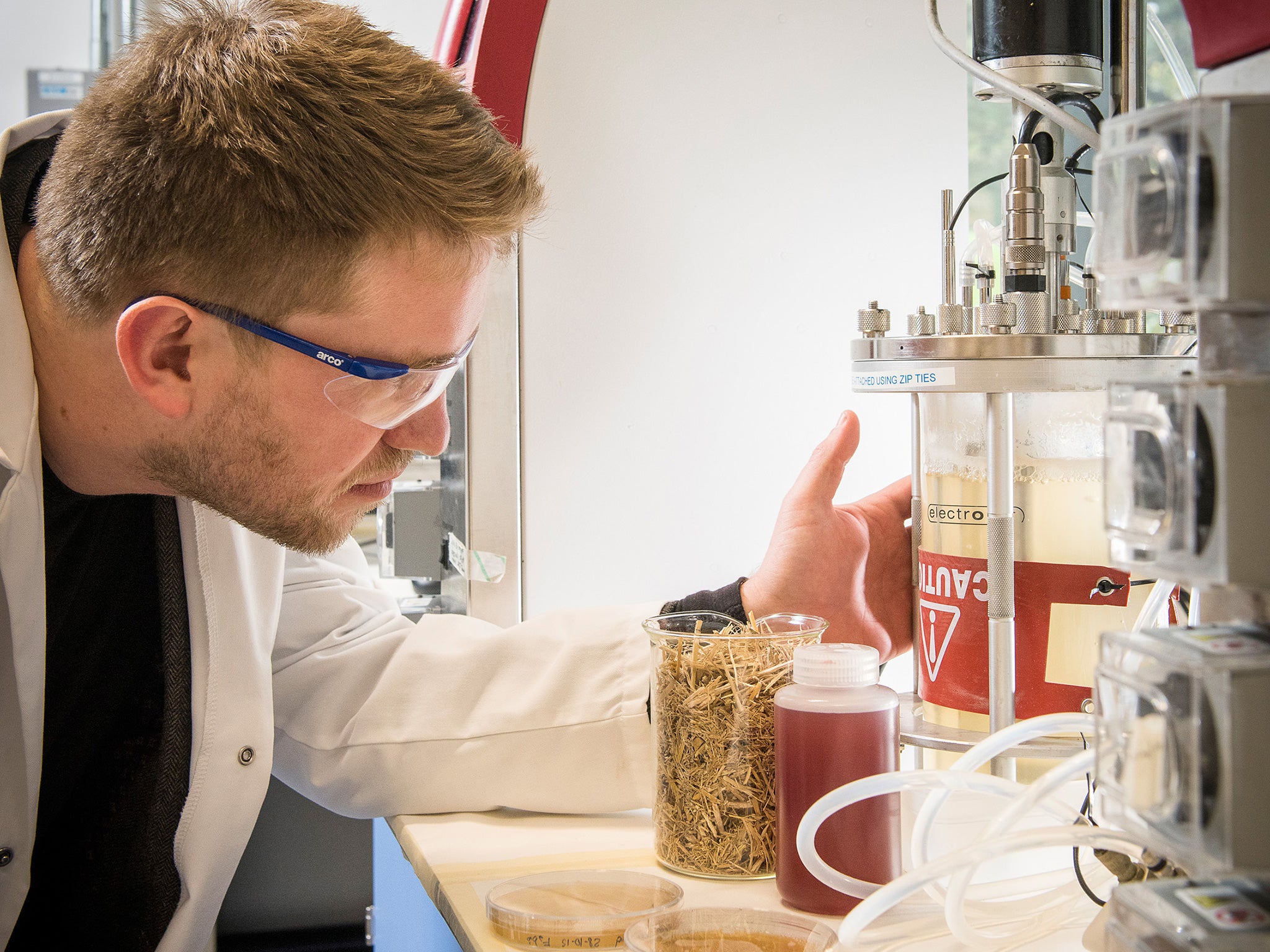Palm oil alternative could avert devastation caused by plantations
Teams from the Universities of Bath and York are developing the substitute from a yeast grown using waste feedstocks

Engineers and scientists are working to produce the first yeast-based alternative to palm oil on an industrial scale, which could help avoid the environmental devastation often caused by the expansion of plantations.
Teams from the University of Bath and University of York are developing the palm-oil substitute from a yeast grown using sustainably sourced waste feedstocks.
Palm oil is an edible vegetable oil, high in saturated fats with a high melting point, and is derived from the fruit of oil palms.
Approximately 60 million tonnes of palm oil is produced each year across the world, with more than 40 million tonnes exported to more than 70 countries.
The oil, which has relatively low production costs, is used in biofuels, food such as cakes and biscuits, and cosmetic products including lipstick and shampoo.
However, a high demand for the oil has caused the rapid expansion of palm plantations in South-east Asia.
This has been linked to widespread and severe deforestation, water pollution, increased greenhouse-gas emissions and heavy smog pollution across the area.
Scientists at Bath previously found the yeast Metschnikowia pulcherrima can be grown on a variety of agricultural and food wastes. With slight changes to growth conditions, the yeast can be made to produce a thick oil with nearly identical qualities to palm oil.
Researchers say they are confident it could became a direct replacement for palm oil, mitigating the environmental issues associated with its production.
The team, along with industry partners Croda, C-Tech and AB Agri, has been awarded a grant of £4.4m to examine how to produce the oil on an industrial scale.
Lead researcher Dr Chris Chuck, a lecturer in the department of chemical engineering at Bath, said: “This project is an exciting opportunity for us to develop a renewable alternative to palm oil, while developing further sustainable technologies that could have a significant impact on many other UK sectors.”
During the research, scientists will apply a method of depolymerizing waste feedstocks using efficient, large-scale microwave heating at York University. The team at Bath will improve the genetic understanding of the yeast, scale up the fermentation to an industrial scale and assess the total environmental impact across the life cycle.

Professor James Clark, from York University, said: “This is a great opportunity for an outstanding, multidisciplinary team to integrate cutting-edge bio- and chem-technologies to tackle a major global resources challenge.”
The four-year project has been funded by BBSRC, EPSRC and Innovate UK as part of the IB Catalyst Programme to support the development and commercialisation of innovative, industrial biotechnology processes.
Dr Tim Mays, head of Bath’s department of chemical engineering, described the team working on the yeast as “fantastic”.
“The work will have significant, positive impact in sustainable energy, food and personal-care technologies,” he added.
Press Association
Join our commenting forum
Join thought-provoking conversations, follow other Independent readers and see their replies
Comments
Bookmark popover
Removed from bookmarks